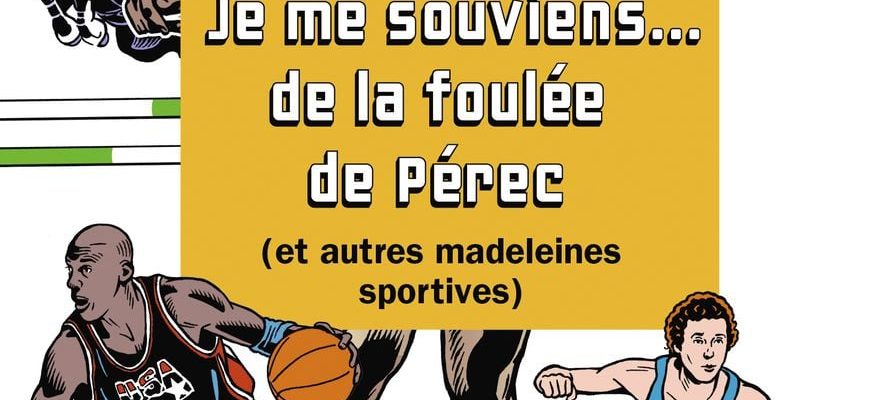I remember. It was September 21 of the year 2000, this year marked with as many zeros as there were Olympic circles, or almost. I remember a disappearance. With Pérec, we should have expected it. The disappearance of Perec (Georges) was without “e”, without them, his parents gone up in smoke under a shell or in the camps. With Pérec (Marie‐Jo), it was without her. His name was written, inert, on the scoreboard at Sydney Stadium, followed by these three enigmatic letters: DNS. Did not start. And that was all. Disappeared. Soaring. In the Australian night we saw a long silhouette running. Who was running towards a plane. A race without a medal, except the blinding reflection of its reverse. At that moment there was no more gazelle, no more triple Olympic champion, no more national pride, no more Guadeloupean queen. There was nothing left but a large question mark stuck like a sharp point in the ash of absence.
For what ? Why now, she to whom her times could give hope of new laurels? In the absence of a response, the stride of his surname was lengthened. Commentators spoke perplexedly of Marie-José Pérec, renouncing the reduction of the name which, as Roland Barthes had noted in his Mythologies is proportional to the explosion of notoriety. When she started, in 1988, still unknown, her first title as French champion was greeted by her name throughout. Then over the course of her exploits, from world championships to Olympic titles, she became Pérec, before giving herself a first name, Marie‐José. And inevitably, familiarly, to become just Marie‐Jo (I hear Patrick Montel’s voice rising in high notes in Spain and of course for his double crowning of the 400 meters and 200 meters in Atlanta, Marie-José Pérec, Marie- José you have to go! Marie‐Jo, Jo like JO). She was going so fast, our champion with endless legs – “the most beautiful legs of Barcelona”, famous drawing by Chenez –, who had to be saluted as quickly as possible as the final race approached. Marie‐Jo did the trick.
In Sydney, in the astonishment of this non-departure, the enigma was spelled out in full. We knew, or thought we knew, Marie‐Jo. We knew nothing about Marie-José Pérec. […]
Little was still known about the little girl from Basse‐Terre, consumed by superstitions and childhood sorrows. Troubles coming from far away, to which were added health problems contracted two years before the Games, during a mission in Africa for Unicef. Mononucleosis which had turned into myocarditis, doubling his heart rate from 45 to 90 beats per minute. As soon as she climbed a staircase, she lost her breath. It took weeks of rest before she could seriously retrain. But in this period of uncertainty, the morale of the woman who was still called “the icon” or “the goddess of the stadiums” had fallen dangerously to half-mast. […]
The Pérec mystery
Then this Olympic “machinery” was triggered, which made our champion a prey, facing an entire hostile country, because it was attached to her rival Cathy Freeman. The commentators, the media, the spectators, the man in the street, everyone had their own idea about the defection of Marie-José Pérec (no more nickname from now on). Was she doped and afraid of being confused? No, the sports authorities firmly declared. Had she, as she claimed a little later, been insulted in the streets of Sydney, verbally attacked, chased into her hotel room which she had taken outside the athletes’ village? The Australian press went wild.
THE Daily Telegraph called Pérec “Mademoiselle La Chicken” – the sissy –, castigating her “panic flight” which was going to deprive these Games of the emblematic duel expected since Atlanta where Catherine Freeman had to settle for silver behind the wind-soled Guadeloupean. “Pérec fled before confronting Cathy,” was how the affair was summed up. “You’ll never see me run again,” Pérec countered. The sentence fell, dry, irrevocable. Even if the three-time Olympic champion hoped to return to her victorious path, the spring was broken. The body prevented. The desire vanished. The page forever turned. […]
No doubt the champion had her reasons that reason was unaware of, that only she perhaps (but is that so certain?) knew. The fact remains that French athletics has never experienced such a phenomenon. This elegance combined with power, this given feeling of ease, when his opponents strive to stick to him. She flies, she flies away. I have often watched the images of his Olympic victories. It’s the same miracle each time. All the lanes are occupied by athletes racing towards victory. She alone gives the impression of slowing down, of walking along, in her ample and cruel stride for those who challenge her. There it is, the Pérec mystery. Go quickly without appearing in a hurry.
Extract of I remember… Pérec’s stride (and other sporting madeleines), directed by Benoît Heimermann. Threshold, 226 p., €19.90.
When 27 writers remember their favorite Olympics
© / Edition of the Threshold
Taken from I remember… Pérec’s stride (and other sporting madeleines), directed by Benoît Heimermann. Threshold, 226 p., €19.90.
